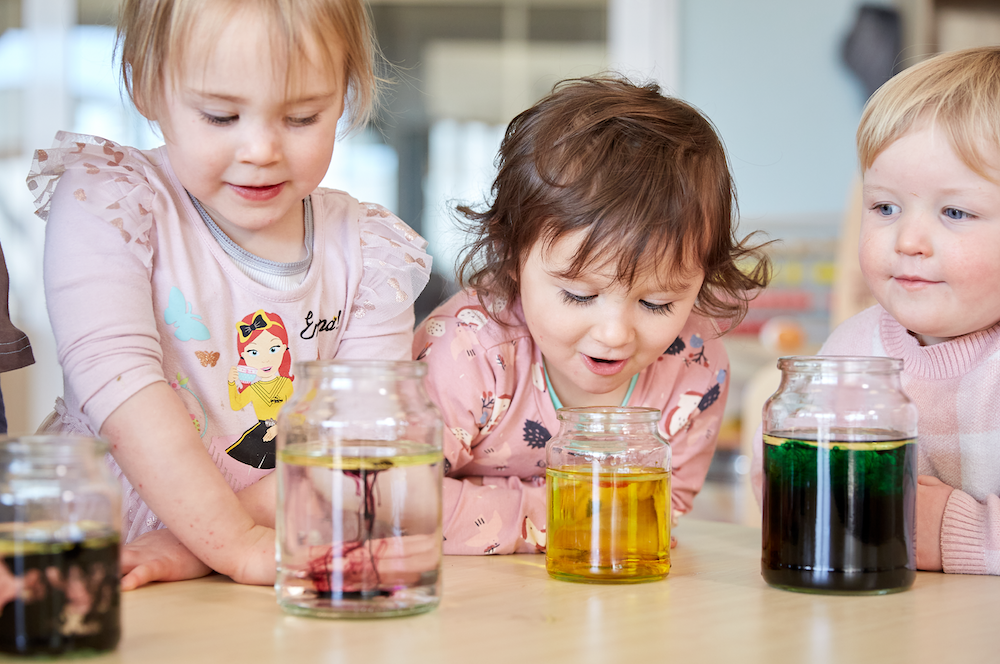National Science Week 2022 | Glass | CareforKids.com.au
Published on Saturday, 13 August 2022
Last updated on Friday, 12 August 2022

National Science Week 2022 runs from August 13 - August 21. It's Australia's annual opportunity to celebrate science and STEM and is an excellent excuse to try out a range of interesting science-based activities for early childhood learning.
First held in 1997, National Science Week has become one of Australia's largest festivals and in 2018, 1.2 million people participated in over 2100 events and activities. It's not too late for your Early Childhood Education & Care service to join the fun and we've got some great Science Week ideas to help you celebrate.
The theme for National Science Week 2022 is 'Glass: more than meets the eye'. It will celebrate the many roles that glass plays in our lives – from phone screens to optical fibre to glassware in labs – plus investigating glass as a part of our sustainable future.
To help you make the most of this amazing event try the following Science Week activities:
-
Invite parents who are scientists or who work in a science related field to visit your service and share their knowledge with the children. Encourage parents and visitors to bring safe objects from their profession for children to look at and hold. Pictures or books could also be helpful.
-
Have a science dress up day, providing families with ideas related to the children's current interests. For example, dressing as an animal that comes from an egg (butterfly, spider, bird, dinosaur, fish); or wearing shapes or colours related to the weather (rainbows, clouds, rain, sunlight).
-
Invite children to do a simple STEM activity at home with their families and provide instructions and handout information. For example, mix vinegar and sodium bicarbonate from the kitchen cupboard, or look at the phases of the Moon.
-
Decorate the walls of your service with science related pictures, drawings, murals and paintings.
-
Explore objects and hands-on activities related to Indigenous science and technology, such as animal tracks, the seasons, and fish traps. The IndigiSTEM Activities Workbook and IndigiSTEM Educator Notes include 20 STEM activities that incorporate Indigenous perspectives.
-
Include science-related books in daily reading and book displays, you may like to check out the Early Learning STEM Australia (ELSA) booklist for ideas.
-
Book a science-themed incursion for the children in your service the STARPortal has some great suggestions.
-
Another incursion idea is the Museum in a Box, which gives children an opportunity to experience real museum specimens, including casts, artefacts, dioramas, images, DVDs, CDs, books and resources from the Australian Museum.
-
Organise science-related professional development for your educators to inspire them to incorporate science into their programming during National Science Week and on an ongoing basis throughout the year, for example the training provided by Little Scientists.
There are lots of resources educators can access to offer National Science Week ideas and activities for making this year’s Glass inspired event interesting and fun for everyone. Here are some to get you started:
-
Search for science related resources from Early Childhood Australia.
-
Look for discovery centres, including science centres, zoos, botanic gardens and museums in your area for activity ideas and excursions.
-
Watch preschool science activities in action in Questacon Science Time videos.
-
Check out activities from Children's Discovery Museum in the Little Bang Book of Discovery.
For more ideas and some interesting case studies on how early learning services have celebrated National Science Week check out the Early Childhood Activities Booklet you can also visit the website.
Related Articles

5 fun science experiments for preschoolers | Careforkids.com.au
5 fun ideas to celebrate National Science Week.

Hands-on science for early childhood
Simple hands-on science projects to engage preschool children in STEM and nurture a lifelong interest in learning through exploration and experimentation.

Showcasing ‘everyday science’ in the early years | Careforkids.com.au
The science of everyday life offers children a range of valuable learning opportunities and the Australian Council for Educational Research has published a range of free educator resources to support the development of science skills in the early years.
